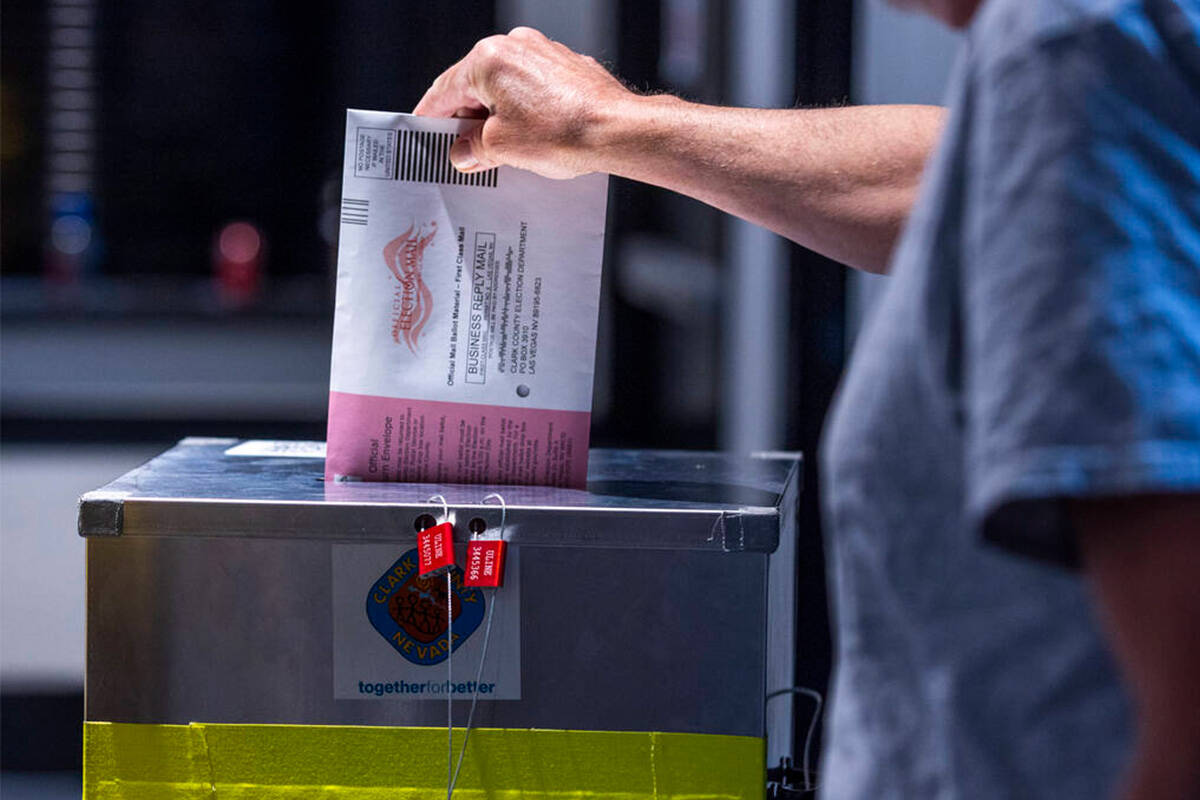EDITORIAL: Court affirms legality of mail ballot security measure
A legal fight in Texas has major implications for elections in Nevada.
In 2021, Texas passed the Election Protection and Integrity Act. The legislation required those requesting and returning mail ballots to provide an identification number such as a driver’s license number or Social Security number. The law required voters to submit it on their application and when they returned their mail ballots.
There are two benefits to this. First, it would verify the identity of the person submitting the mail ballot application. Unlike Nevada, Texas doesn’t automatically send out mail ballots to voters. Second, this is a stronger security measure than comparing signatures. A person’s signature can change over time or even vary based regularly. An identification number remains constant.
This is why Nevada officials initially rejected more than 32,000 mail ballots last November. The signatures didn’t match. Many of the ballot envelopes had their signatures “cured,” but in the end more than 9,000 ballots didn’t get counted.
After the Texas measure passed, the Biden administration and other plaintiffs, including the League of Women Voters of Texas, sued. They argued that this requirement violated the Civil Rights Act of 1964. That law forbids a state from denying someone’s vote “because of an error or omission on any record or paper relating to any application, registration or other act requisite to voting, if such error or omission is not material in determining whether such individual is qualified under state law to vote in such election.”
In 2023, a federal court ruled on behalf of the plaintiffs and barred Texas from using this number-matching provision.
But in a recent ruling, a panel of the 5th U.S. Circuit Court of Appeals unanimously disagreed. “The number-matching requirements are obviously designed to confirm that every mail-in voter is indeed who he claims he is,” Judge James Ho wrote. “And that is plainly material to determining whether an individual is qualified to vote.”
That’s why this requirement doesn’t violate the Civil Right Act. Further, Mr. Ho found that Texas has a legitimate interest “in preventing the scourge of mail-in ballot fraud.”
Even though Nevada is in the 9th Circuit and not covered by the ruling, the decision has implications here. Next November, voters will again weigh in on Question 7. This proposed constitutional amendment, which will become law if voters approve it a second time, requires photo ID for in-person voting or an identification number for mail-in ballots.
Because it received more than 70 percent approval last November, the measure is highly likely to pass again next year. This ruling should give Nevada voters even greater confidence that this common-sense requirement will pass legal muster.

















